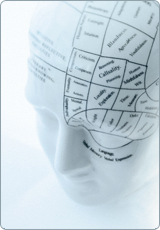There is a really bizarre story reported by CBC and sundry other new services that has a decidedly eHealth angle. A person named Howard Levanthal in the US impersonated a Canadian Deputy Health Minister to fraudulently win loans from an investment bank. The guy doesn't look remotely like Glenda Yeates, but her signature appears on his million dollar contract with Health Canada. Revolving around these expenses was a supposed medical device his company Neovision had developed called the Heltheo's McCoy Home Health Tablet, named after Dr. McCoy of Star Trek and Tricorder medical device fame.
Tricorder-like devices are actually being developed by the Qualcomm Tricorder XPrize. There are are now 3 Canadian teams in the competition. I blogged about the XPrize Tricorder competition before and continue to be interested in it. This story was picked up by a delightful science fiction/science fact blog called Giant Freaking Robot. The Robot had the wherewithal to know that there are quickly evolving attempts to develop tricorder like medical diagnostic and assistive devices, and even posted to his story a youtube video to one of the contestants for the Xprize - Scanadu.
It makes me wonder if eHealth is being over-hyped these days ("Healthcare Hullabaloo", as Giant Freaking Robot says) and people are readily responding to new developments. Not that this blog is helping to over-hype eHealth or anything... Anyway, I really like the quote in the CBC news story that: "His actions were the stuff of fantasy and science fiction, valid only in another dimension"

Tricorder-like devices are actually being developed by the Qualcomm Tricorder XPrize. There are are now 3 Canadian teams in the competition. I blogged about the XPrize Tricorder competition before and continue to be interested in it. This story was picked up by a delightful science fiction/science fact blog called Giant Freaking Robot. The Robot had the wherewithal to know that there are quickly evolving attempts to develop tricorder like medical diagnostic and assistive devices, and even posted to his story a youtube video to one of the contestants for the Xprize - Scanadu.
It makes me wonder if eHealth is being over-hyped these days ("Healthcare Hullabaloo", as Giant Freaking Robot says) and people are readily responding to new developments. Not that this blog is helping to over-hype eHealth or anything... Anyway, I really like the quote in the CBC news story that: "His actions were the stuff of fantasy and science fiction, valid only in another dimension"
Pleads guilty to aggravated identity theft for impersonating Glenda Yeates
The FBI says an Illinois man accused of impersonating a Canadian deputy health minister as part of a fraud scheme has pleaded guilty to wire fraud and identity theft charges.
Howard Leventhal, 56, of Long Grove, Ill., was accused of trying to defraud a number of individuals and entities of millions of dollars by falsely claiming his company, Neovision, had a lucrative contract with the Canadian Health Department.
'His actions were the stuff of fantasy and science fiction, valid only in another dimension.'
- United States Attorney Loretta Lynch
Leventhal pleaded guilty to aggravated identity theft, which carries a mandatory two-year term of imprisonment, for stealing the identity of Glenda Yeates.
When sentenced on April 3, 2014, Leventhal faces up to 22 years in prison, $1,050,819.78 in forfeiture and restitution, and a fine of more than $2 million.
Tablet named after Star Trek's Dr.Leonard McCoy
Court in Brooklyn, N.Y. heard Leventhal told potential investors Neovision had written agreements with Health Canada, whereby Neovision would provide Health Canada with Heltheo's McCoy Home Health Tablet.

Leventhal pleaded guilty to aggravated identity theft, which carries a mandatory two-year term of imprisonment, for stealing the identity of Glenda Yeates, pictured above.
The device — named after the fictional Dr. Leonard McCoy of TV's Star Trek series — purportedly delivers instantaneous and detailed patient data to physicians and other licensed health-care providers.
Prosecutors alleged earlier this year that Leventhal scammed Paragon Financial Group for $800,000 by claiming it could collect money he said Health Canada owed to his company.
Leventhal also used the purported agreement with Health Canada to solicit more than $25 million from other potential investors, including an undercover law enforcement agent. RCMP allege Leventhal tried to get a $2.5-million line of credit from TD Bank in Toronto in July.
"In Leventhal's world, the truth was cloaked by his web of lies and impersonation. Within this alternate reality, Leventhal marketed non-existent technology, fabricated an online presence, and impersonated a government official, all to defraud investors out of very real money," said United States Attorney Loretta Lynch in a statement.
"His actions were the stuff of fantasy and science fiction, valid only in another dimension."



 How it Works
How it Works